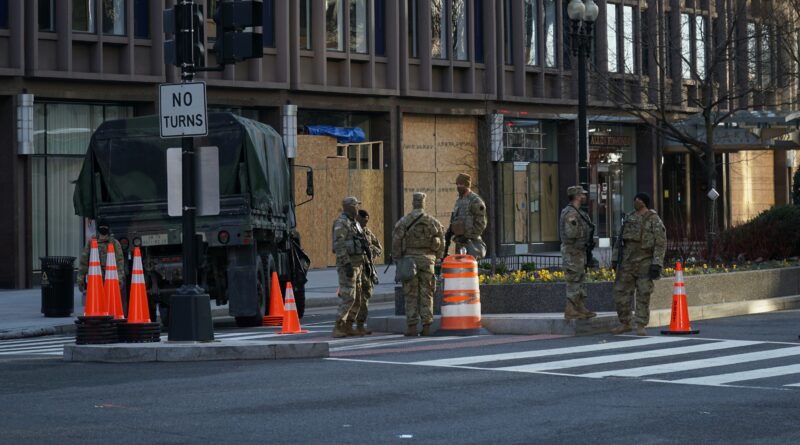Send in the Troops: Trump’s March Toward Authoritarianism
BALTIMORE – With his customary ham-handed delicacy, President Donald Trump gazes 40 miles north from the Oval Office, glimpses the landscape, and declares this city “so far gone.”
So far gone from what? From the last time he looked Baltimore’s way? That was six years ago, when Trump said, “No human being would want to live there.”
Remember what provoked such a cruel and calculatedly phony remark? Trump didn’t like some remarks the late Rep. Elijah Cummings made about conditions at America’s Southern border, which Trump called “clean, efficient and well run, just very crowded.”
Cummings dared to contradict such an obvious lie. He lamented what was widely reported back then: that terrified immigrant children were being separated from their distraught parents, that people were crammed into cages, that they went days without showers, or brushing their teeth, or changing their clothes.
On the floor of the House, Cummings, who had only months to live, issued a plaintive cry to America: “We’re better than this.”
So Trump, in a tweet, called Cummings’ West Baltimore congressional district “a disgusting rat and rodent-infested mess.”
And now, in the same breath in which he puts Washington, D.C. police under federal control, he declares, “We have other cities that are very bad…and then you have, of course, Baltimore and Oakland. We don’t even mention that anymore, they’re so far gone.”
With that, Trump put Washington’s police force under federal control and ordered the deployment of the National Guard there. He said they were needed to fight crime and homelessness in the nation’s capital.
Yes, homelessness.
“The Homeless,” he wrote in a social media post, “have to move out IMMEDIATELY. We will give you places to stay, but FAR from the capital.”
Baltimore, perhaps, Mr. President?
The White House is not yet saying. Nor are they mentioning that crime in Washington is at record lows – even though Trump’s fraudulent implication is that it’s worse than ever.
Similarly, we have Baltimore. In case Trump hasn’t noticed — and he obviously hasn’t — this city’s famous homicide rate, which topped 300 annually, is now down dramatically. In 2022, for example, there were 336 Baltimore homicides. In 2024, there were 202.
This year, to date, 84.
Big deal, what are statistics? To this president, they mean nothing. Just check with the Labor Department. He doesn’t like the latest job figures, so he tosses them aside and looks for somebody to blame for bad math skills.
But Trump’s newest moves aren’t about crime at all. They’re about politics, and they’re about power. The president takes note of crime in politically blue states and conveniently overlooks the worst crime levels, which are in red states.
Is there enough crime in cities across America to desire extra help? Yes, of course. That crime has been there for years, including the years in which Trump has been president.
What’s troubling is the notion of putting street-corner police work into the hands of the federal government. It feels like one more sign of creeping authoritarianism under the Trump administration.
“This is Liberation Day in D.C.,” Trump announced.
Yes, as The Atlantic Magazine’s David Graham pointed out, “Nothing says ‘liberation’ like deploying hundreds of uniformed officers against the wishes of the local elected government.”
Calling it a “PR stunt,” Graham also notes the new move “could create precedent for Trump to send armed forces out into American streets whenever he declares a spurious state of emergency.”
Thousands take to the streets to peacefully protest abortion restrictions? Send in the troops. Or they peacefully protest America’s role in Ukraine, or the Middle East?
Send in the troops.
Or they peacefully protest, perhaps, a pardon for Ghislaine Maxwell?
The precedent has now been set. There are people in the streets, and they’re peaceful, but they’re making Trump look bad?
Send in the troops.
Welcome to the New America, folks.

Michael Olesker, columnist for the News American, Baltimore Sun, and Baltimore Examiner has spent a quarter of a century writing about the city he loves.He is the author of several books, including Michael Olesker’s Baltimore: If You Live Here, You’re Home, Journeys to the Heart of Baltimore, and The Colts’ Baltimore: A City and Its Love Affair in the 1950s, all published by Johns Hopkins Press.

